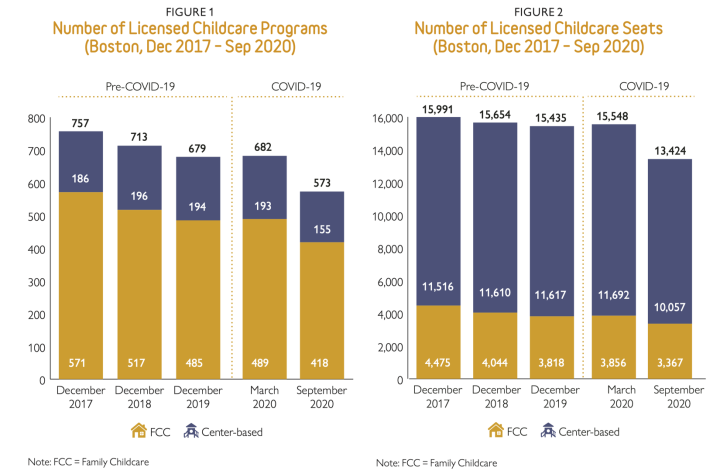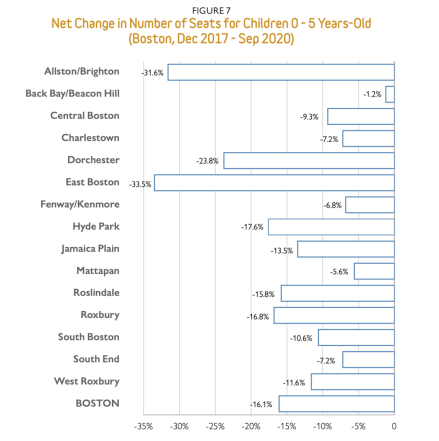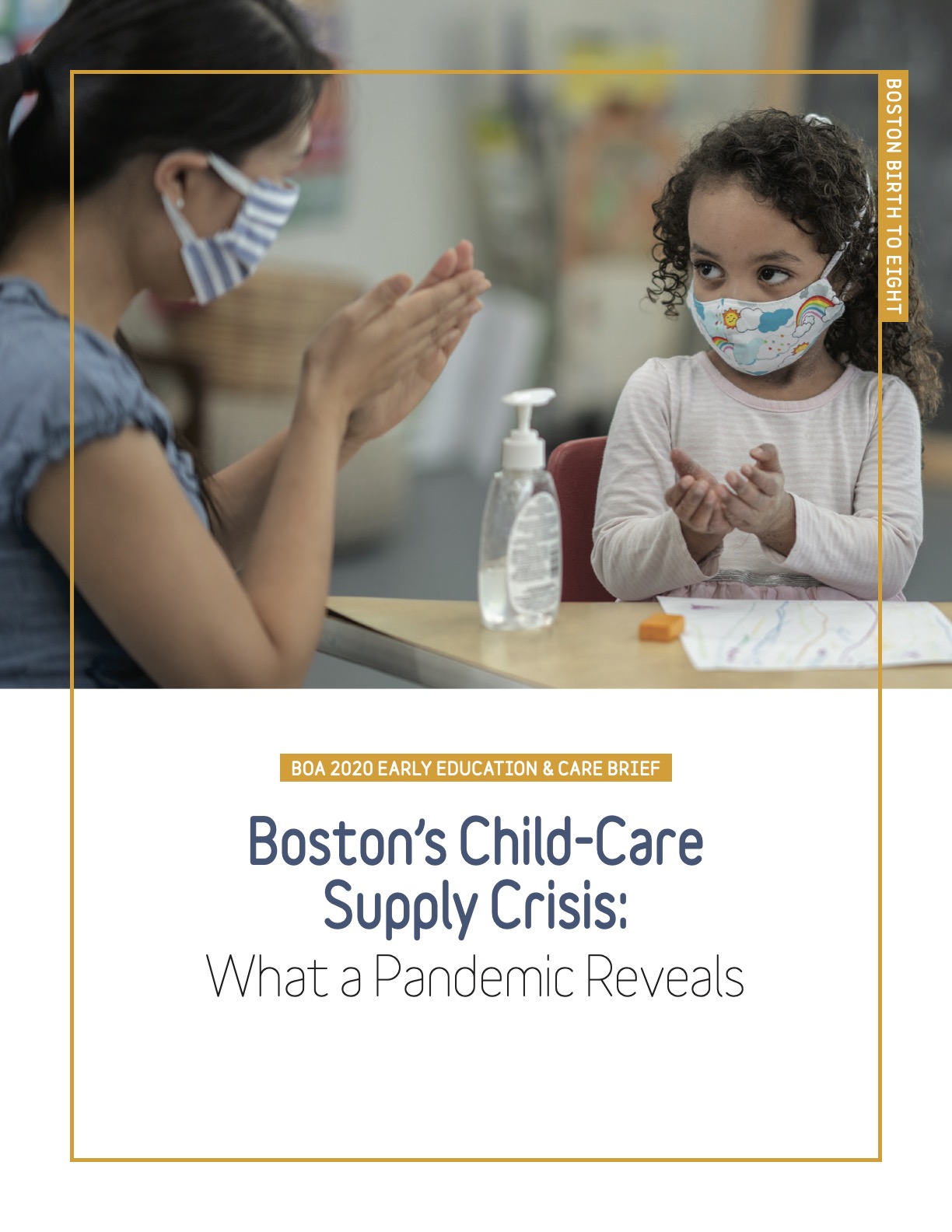New census of early education system finds pandemic exacerbating challenges of supply, affordability in Boston
November 17, 2020
Boston – An updated review of the state of early education programs in Boston by The Boston Opportunity Agenda’s Birth to Eight Collaborative finds that COVID-19 has further deepened pre-existing inequities in the availability of affordable quality childcare in neighborhoods throughout Boston. The report, Boston’s Child-Care Supply Crisis: What a Pandemic Reveals, updates the Opportunity Agenda’s 2019 census of child-care programs citywide. It’s the first in a two-part series looking at the system in the pandemic era.
“COVID-19 has exposed and highlighted inequities throughout our economic, education and health care systems, and these dimensions come together when we look at the state of childcare availability in Boston,” said Kristin McSwain, Executive Director of the Boston Opportunity Agenda, a public/private partnership that works to increase dramatically the pace and scale of change in education for all children in Boston. “The data show that troubling trends in childcare availability and affordability were accelerated by the pandemic, and it will take a significant, intentional investment of resources to begin to reverse the dynamic.”
Signs of trouble preceded COVID, but declines accelerated by pandemic
The data show that the number of seats available citywide had fallen slightly between December 2017 and March 2020, with the decline most notable in family childcare facilities. COVID-19, however, accelerated the decline. Between March and September of 2020, the number of available seats dropped from 15,548 citywide to 13,424 – a loss of 2,124 seats, or 14 percent – across both center-based and family childcare programs. For the latter, this builds on an ongoing decline; since December 2017, the number of family childcare seats in Boston has dropped by 25 percent.

Exacerbating the challenges for families looking for affordable childcare in many neighborhoods, the decline in available seats is hitting hard in areas with higher percentages of Black and Latinx families. East Boston has lost a third of its childcare seats for 0-5-year-olds since December 2017. Allston-Brighton has lost nearly a third and Dorchester about one-quarter. Many of these hardest-hit neighborhoods had been losing seats before the pandemic, even as other neighborhoods, such as South Boston, Back Bay and West Roxbury, were adding seats.

The research notes that the pandemic has significantly reduced the current demand for seats. A survey by Boston Children’s Hospital found that family childcare centers were operating at 86 percent of available capacity before the pandemic; research by the City of Boston has found centers operating at just under 60 percent of capacity during the pandemic, even with the large number of centers closing their doors temporarily or permanently.
The warning from the researchers, however, is that those lost seats are unlikely to immediately reappear when the economy begins churning again, leading to what the report calls out as a loss of “an entire infrastructure that has proven itself to be critical to the sectors of education, public health, social services, essential workers and the City’s economy.”
The report cites the work of hundreds of centers statewide that re-opened at the height of the pandemic under the Exempt Emergency Care initiative, providing not just care, but serving as distribution centers for food, childcare needs such as diapers, and other necessities – services made possible through their own dedication coupled with the generous contributions of local foundations and corporations, who have provided funds to close the gaps between the cost of emergency care and the state investment.
While costs have risen by as much as 70 percent according to some studies, the amount of funding and support for the sector has not kept pace, and researchers warn that “the thin revenue margins of child-care businesses mean savings that may have accrued over two decades or more were lost in two months. As the pandemic has drawn on, these trends have continued and only worsened the prospects of the survival of the early education and care sector.”
The report closes by highlighting a series of recommendations released in September by The Alliance for Early Success in its Build Stronger Child-Care Policy Roadmap, which identified four key areas of work to create a stronger early childhood system nationwide.
They include:
- Advance the Early Care and Education Profession: Expand Provider Support Initiatives
Expanding opportunities to give family childcare providers linguistically accessible, flexible and year-round access to supports that increase their business stability and quality could improve centers’ economic viability.
- Build a Better Child-Care Business Model: Modernize Data Systems
While the K-12 system in Boston and Massachusetts has a strong data infrastructure, the same cannot be said for the early childhood sector. Bolstering data systems is critical to enhancing the understanding of the sector and ensuring the entire education pipeline is visible and transparent for policy and funding decisions.
- Increase Access and Affordability for All Families: Expand State Investment in Child-Care
Accepting subsidies was the strongest predictor of a Boston child-care program declaring its intention to reopen in September 2020, and enhancing support for families seeking affordable, quality childcare expands the opportunity for children and families to access the many educational, health and economic benefits of early childhood programs.
- Reform Child-Care Financing
Emergency subsidies to childcare providers helped keep the system more available and stable during the first six months of the pandemic, and by continuing state funding for care based on improving opportunities for care, and by encouraging stronger business investment in childcare as a public good rather than a personal choice, we can provide a stronger base for the sector moving forward.

